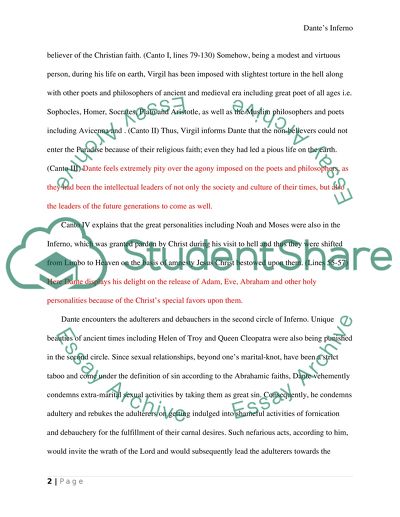Cite this document
(“Essay on Dante's Inferno Example | Topics and Well Written Essays - 1000 words”, n.d.)
Retrieved from https://studentshare.org/literature/1437685--inferno-is-there-a-pattern-or-significance-to
Retrieved from https://studentshare.org/literature/1437685--inferno-is-there-a-pattern-or-significance-to
(Essay on Dante'S Inferno Example | Topics and Well Written Essays - 1000 Words)
https://studentshare.org/literature/1437685--inferno-is-there-a-pattern-or-significance-to.
https://studentshare.org/literature/1437685--inferno-is-there-a-pattern-or-significance-to.
“Essay on Dante'S Inferno Example | Topics and Well Written Essays - 1000 Words”, n.d. https://studentshare.org/literature/1437685--inferno-is-there-a-pattern-or-significance-to.


